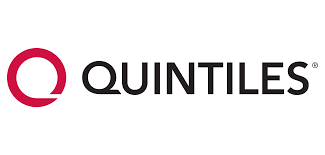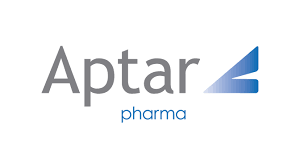Crown Bioscience Announces Inaugural Symposium to Foster Greater Understanding of Predictive Models in Oncology

Crown Bioscience, Inc. has announced an inaugural symposium on the use of Patient-Derived Xenograft (PDX) models to accelerate Oncology drug discovery and the translation of novel candidates into the clinic. The symposium is to take place at the Museum of Science, Boston, MA, on Wednesday 10 September 2014.
The symposium will aim to foster a greater understanding of the crucial role of PDX in both the clinical and research communities, and demonstrate its effectiveness as a tool enabling improvements in both drug development and pre-clinical decision making. The industry’s increased focus on using PDX models in pre-clinical screening is due to the significant time and financial savings for drug developers and the ability to identify the most promising novel candidates and advance them through to the clinic.
Crown has invited a series of highly respected speakers from the local pharmaceutical and clinical research community who will deliver talks on clinical translation and study design. The programme will also include presentations from Henry Li, Vice President of Translational Oncology, Crown Bioscience, and Dr Rajendra Kumari, Chief Scientific Officer, PRECOS Ltd.
Dr Jean-Pierre Wery, President of Crown Bioscience, stated: “Crown is committed to facilitating development and improvement in translational oncology. The symposium is a chance for professionals from both the research and clinical communities to come together and pool their extensive knowledge and experience.“ He continued: “We hope that by working together as a community to increase understanding of pre-clinical screening technology, we can provide an improved service to assist drug developers in the global effort to extend cancer patients’ survival and improve the quality of their lives."
Henry Li, Vice President of Translational Oncology at Crown Bioscience, who will deliver a talk on mouse clinical trial using PDX as surrogate testing subjects for drug evaluation said: “Translational medicine is a key area of oncological research. We are witnessing a dramatic increase in the use of PDX as human surrogates and have seen the effectiveness of PDX modelling in screening novel drug treatments.”
The relevance of PDX models in drug discovery over recent years has increased dramatically. With rising costs and the constant evolution of both disease and treatment, pharmaceutical companies are experiencing a growing pressure to validate their candidates before entering clinical trials, in order to minimise losses on ineffective or unsafe therapeutics. Novel treatments developed to combat ever more complex disease sub-types require advanced screening platforms to yield accurate predictions of performance in the clinic. PDX models offer a cost-effective and efficient testing platform with which to make more informed decisions on candidates with complete confidence ensuring that only the most effective candidates reach the clinic.
Related News
-
News Women in Pharma: Career Design for Women
Our monthly Women in Pharma series highlights the influential lives and works of impactful women working across the pharmaceutical industry, and how the industry can work towards making the healthcare industry and workplace more equitable and inclusive... -
News Pfizer may shift production back to US under Trump pharma tariffs
At the 45th TD Cowen annual healthcare conference in Boston, USA, Pfizer CEO Albert Bourla outlined the potential for Pfizer to shift its overseas drug manufacturing back to the US as pharmaceutical industry players weigh their options against Presiden... -
News Women in Pharma: Connecting accessible pharma packaging to patients – a Pharmapack Special
Throughout our Women in Pharma series, we aim to highlight how CPHI events encourage discussions around diversity, equity, and inclusion initiatives in the pharmaceutical industry. -
News CPHI Podcast Series: Packaging expert perspectives at Pharmapack 2025
This month's podcast episode sounds a little different, covering the latest event in Paris – Pharmapack 2025. Digital Editor Lucy Chard speaks to several experts direct from the floor of the show, bringing you right in on the action.&nbs... -
News Closing 2024 with Editors' picks of top articles from the past year
Coming to the end of 2024 and it’s certainly been a busy year, for CPHI and for the rest of the pharmaceutical and healthcare industry. Topics of conversation throughout the last 12 months have been varied, touching on the technical, to the polit... -
News SCHOTT Pharma’s sustainable journey with CPHI
Sustainability is of paramount importance in the pharmaceutical industry. See how a recent partnership between CPHI and SCHOTT Pharma has helped to highlight and accelerate their sustainability journey to reach global goals. -
News CPHI Podcast Series: Investing in a vision for the future of life sciences
In this episode Lucy Chard is joined by Rajiv Khatau to discuss the importance of looking into new therapeutic areas and some of the more niche areas of pharmaceuticals, and investing in the future of the industry. -
News Lessons from CPHI Milan 2024: Sunny Intervals for Pharma Manufacturing?
As the 2024 CPHI conference wrapped up in Milan, we caught up with L.E.K. Consulting – a global strategy consulting firm with deep expertise in pharma manufacturing – to discuss evolving market perspectives and business outlook.
Recently Visited
Position your company at the heart of the global Pharma industry with a CPHI Online membership
-
Your products and solutions visible to thousands of visitors within the largest Pharma marketplace
-
Generate high-quality, engaged leads for your business, all year round
-
Promote your business as the industry’s thought-leader by hosting your reports, brochures and videos within your profile
-
Your company’s profile boosted at all participating CPHI events
-
An easy-to-use platform with a detailed dashboard showing your leads and performance















